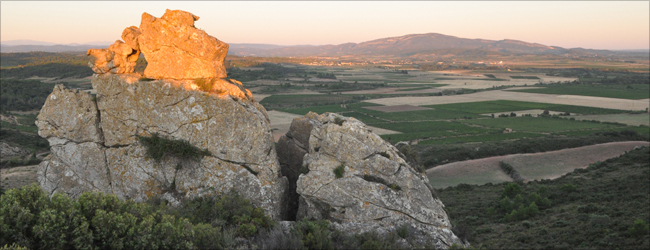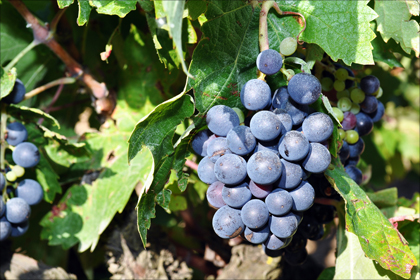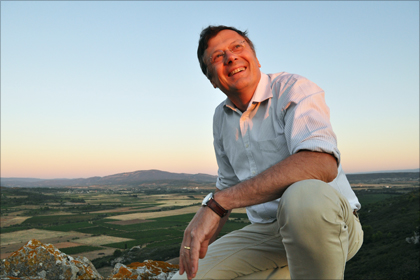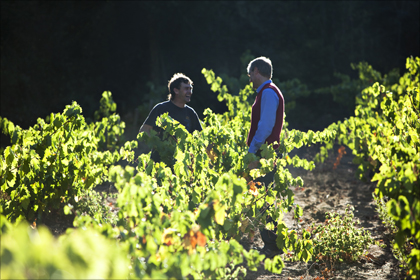We are sorry, this page has not been translated yet.
Château Coulon

The château of the Fabre family seems timeless with its yellow patina, the unruffled ponds and the old orangery. And on the inside, the past is more tangible than the present. The interior is like a black-and-white photograph from an old family album. The great grandmother is present in the form of a life-sized bust. Louis Fabre sees himself as the guardian of a long tradition. At least 12 generations of his family have lived and cultivated wine before him in the tiny Languedoc village of Cruscades, which lies close to Narbonne.
Modern traditionalist
Born in 1953, the winegrower follows his own path between tradition and modernity. This can be seen, for example, in his choice of grape varieties. While other vineyards in the Languedoc dug up their Carignan vines without hesitation and replaced them with supposedly “trendier” varieties such as Merlot or Syrah, Louis Fabre believes in this classic Languedoc variety. “Above all, Carignan-wines from old vines show a tremendous amount of character,” he says. On the other hand, the variety develops its charm best of all in combination with the equally long-established Grenache. The accuracy of his judgement in this respect is demonstrated by his sélection spéciale. The cuvée made up of Carignan, Grenache and Mourvèdre is the epitome of a southern seducer with its dark berry fruit and is one of the most popular Delinat wines of all.

The indigenous grape variety Carignan continues to hold great significance at Château Coulon.
On the other hand, Château Coulon has also been experimenting with new varieties for years. One particular treasure is the 40-year-old Syrah vines, for example. In recent years, Merlot, Viognier, Chardonnay and Sauvignon Blanc have also been planted. They too have become astonishingly well established in the south of France, and the range of wines has expanded in a fascinating way.
A revolutionary in the Languedoc

Louis Fabre is coming ever closer to his vision of viticulture with great biodiversity.
“We are lucky that our vines stand on very good, chalky clay soils. These permit wines with a typical terroir character,” says Louis Fabre. As long ago as 1992, he switched to controlled organic cultivation. The trained agronomist quickly recognised that the conditions in the Languedoc are ideal for this. The climate is hot and annual rainfall is comparatively low at around 500 millimetres. And when it does rain, the prevailing north-west wind, the Cers, quickly dries the vines again/ so the threat of rot and fungal disease is low.

Pure nature in the vineyards of Château Coulon.
Louis Fabre has been pushing measures to increase biodiversity for several years. The aim is to link all the vineyards with one another in such a way that fauna and flora find ideal conditions for life again and ensure a natural cycle. Hedges and individual trees have already been planted over several kilometres. Pools, secondary crops and wild bush landscapes also serve as ecological compensation areas.




